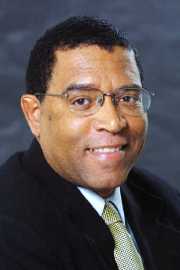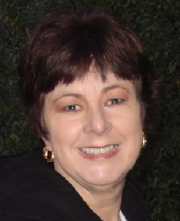[Editor’s note: Yesterday morning Chauncey Bailey, editor-in-chief of the Oakland Post and former reporter for the Oakland Tribune, was assassinated in broad daylight near the intersection of 14th and Alice Streets, three blocks from Lake Merritt. See stories in the Oakland Post, Oakland Tribune, and San Francisco Chronicle.]
Oakland is a town, a small city. For some of us who have been active in promoting, changing, and preserving its allure while defending it against its own death wish, it seems very small. I moved here after living in San Francisco for a number of years, because I was taking a job that would make its location more convenient for me than the “City.”
So somewhere between 1976 and 1979, when I had my children, it became home. Many times I thought of leaving for cheaper, less stressful towns—by which I meant leaving California altogether.
While I was making up my mind, I became a single parent. And because my children are biracial, that is, they are Black, I decided that the West Coast was a better place to raise them than the small Pennsylvania town I came from.
I got involved with OCO (Oakland Community Organizations—thank you Fran Mattaresse) and became forever entered into community discussions, politics, meetings, protests—and now writing—about my town. Having been a student activist at San Francisco State, I became an Oakland activist and believed that bringing my politics home was more important than calling, emailing, and protesting in the capital cities, although doing one doesn’t preclude taking part in the other.
So I met Chauncey Bailey. I can’t say I knew him well though I knew of his many facets. Actually, there were so many facets that I probably only saw a few, as they sparkled at you in the glare of Oakland’s small media establishment. Like so many Oaklanders he seemed to smart at the restrictions of the narrowness of the press here. He dreamed big.
Many comments since his death mention his love of the news biz. I’m sure that was true. But he was also writing screenplays and trying to get his pilots aired on TV. My daughter had a good part in one of his productions and had hoped it would be aired. They were all-Black productions and she was thrilled to be a part of one.
Chauncey hoped to buy a TV station and find a way to get all the news about Oakland covered. Since the days when I worked as chief of staff for an Oakland city councilman, I have stayed angry whenever the West Bay covers this part of the East Bay. I used to ask the TV reporters, “Does the sun never rise in Oakland?” Whatever the story, we see darkened, boarded-up streets, usually with police lights flashing. (I already know some of the comments I’ll read from would-be Orinda-ites who are stuck in Oakland: “Oakland is a homicide capital; Oakland is full of thugs; Oakland is sooo dangerous.” And yes, it is. Probably no place in the US these days is really safe either, but I feel good here.)
Chauncey was everywhere, covering, inventing, talking, and writing about it all. We live in a small city and so many of us “activists”—and Chauncey was an activist as well as a newsman—know each other. (Out of the 6 degrees of separation, it seems we’re down to 2 here.) So losing one really diminishes us all. Losing Chauncey is like pulling on one of the threads that holds our hometown cloth together… and seeing what else will unravel.
I went to a small high school on the East Coast and, in order to have functioning clubs, we all had to be members of many of them. And so it is in Oakland. If we want a better city, a better town, we need to be aware and active in many of its aspects.
My hope is that Chauncey is not remembered for his death and that his death is not used to diss the city he strove to cover in its good news and bad. That would not honor his memory. Chauncey was a multi-faceted man like the city he worked for. Let’s not reduce either to its saddest moments.







Comments